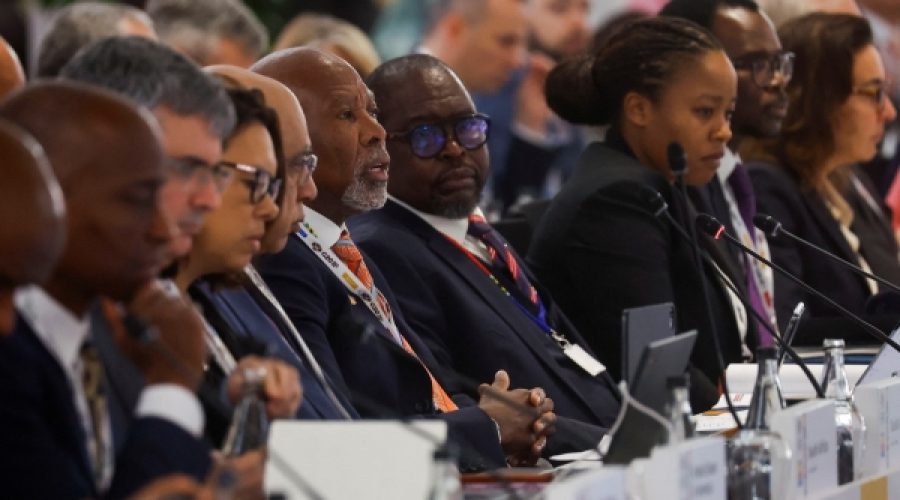Global Turmoil and Development Goals: What It Means for Investors and Businesses in Saudi Arabia
DURBAN: South Africa, as chair of the G20, issued a warning on Thursday about the potential dangers of abandoning the rules-based global order and the erosion of international cooperation. These issues could hinder progress toward the 2030 development goals aimed at eliminating hunger, eradicating extreme poverty, and combating climate change.
The framework, established by all United Nations member states in 2015, outlines 17 targets in critical areas such as education, climate action, and gender equality. However, advancements toward these goals have been inconsistent and are now jeopardized due to increasing global uncertainty and threats to multilateralism.
Currently leading the G20, South Africa’s mandate runs until November 2025, a challenging role that entails managing the interests of a diverse and often contentious membership, which includes the United States, China, Russia, the European Union, and the African Union.
Finance Minister Enoch Godongwana addressed G20 finance ministers and central bank governors, stating, "While inflation is gradually moderating and financial conditions have started to stabilize in some regions, uncertainty continues to weigh heavily on global growth prospects." He highlighted growing concerns over rising trade barriers, persistent global imbalances, and emerging geopolitical risks.
Godongwana warned that these challenges, when combined with climate-related shocks, could push development targets further out of reach. The group has been striving to adapt to significant policy shifts by the United States, particularly since Donald Trump’s return to influence global trade rules.
Notably, US Treasury Secretary Scott Bessent is absent from the two-day meeting in Durban, represented instead by an undersecretary for international affairs. Bessent also missed a similar meeting in February, and US Secretary of State Marco Rubio declined to participate in the gathering of G20 foreign ministers.
"We have a critical role to play in revitalizing and strengthening multilateralism," Godongwana emphasized, urging for inclusive dialogue, reinforced rules-based cooperation, and collective action against global challenges that no nation can address alone.
Germany reaffirmed its commitment to these principles, with Finance Minister Lars Klingbeil stating, "We as the federal government are using all possibilities to discuss how, particularly in these times of international upheavals and uncertainty, we can strengthen our partnerships within the multilateral world order."
The G20, which includes 19 nations and two regional organizations, represents over 80 percent of global economic output.
Special Analysis by Omanet | Navigate Oman’s Market
The recent G20 discussions underscore a critical shift in global dynamics, signaling potential challenges for businesses in Oman that rely on international trade and cooperation. With growing trade barriers and geopolitical uncertainties, entrepreneurs must assess risks in their supply chains and consider diversifying markets to mitigate impacts. Strategic investors should focus on opportunities in sustainable practices, aligning with global development goals, particularly as climate action gains prominence in investment decisions.



